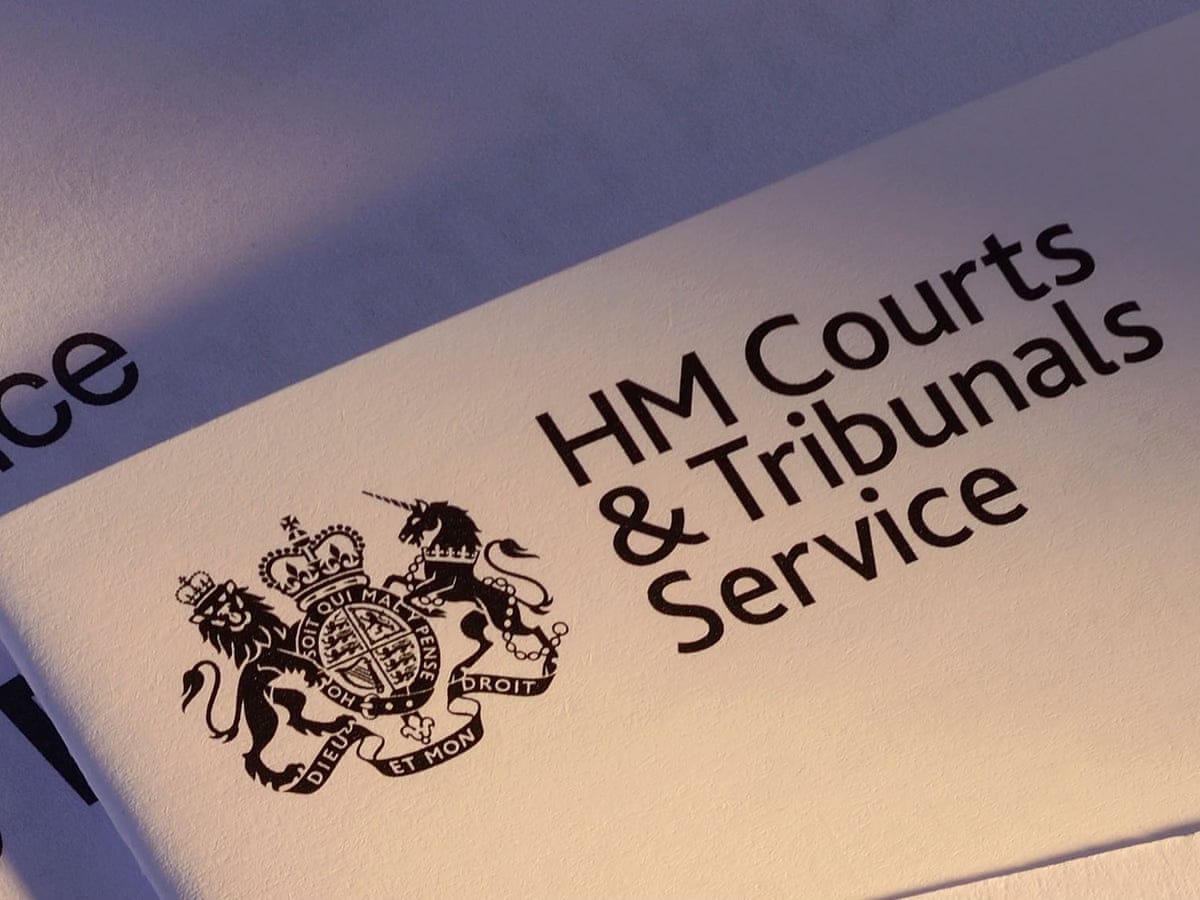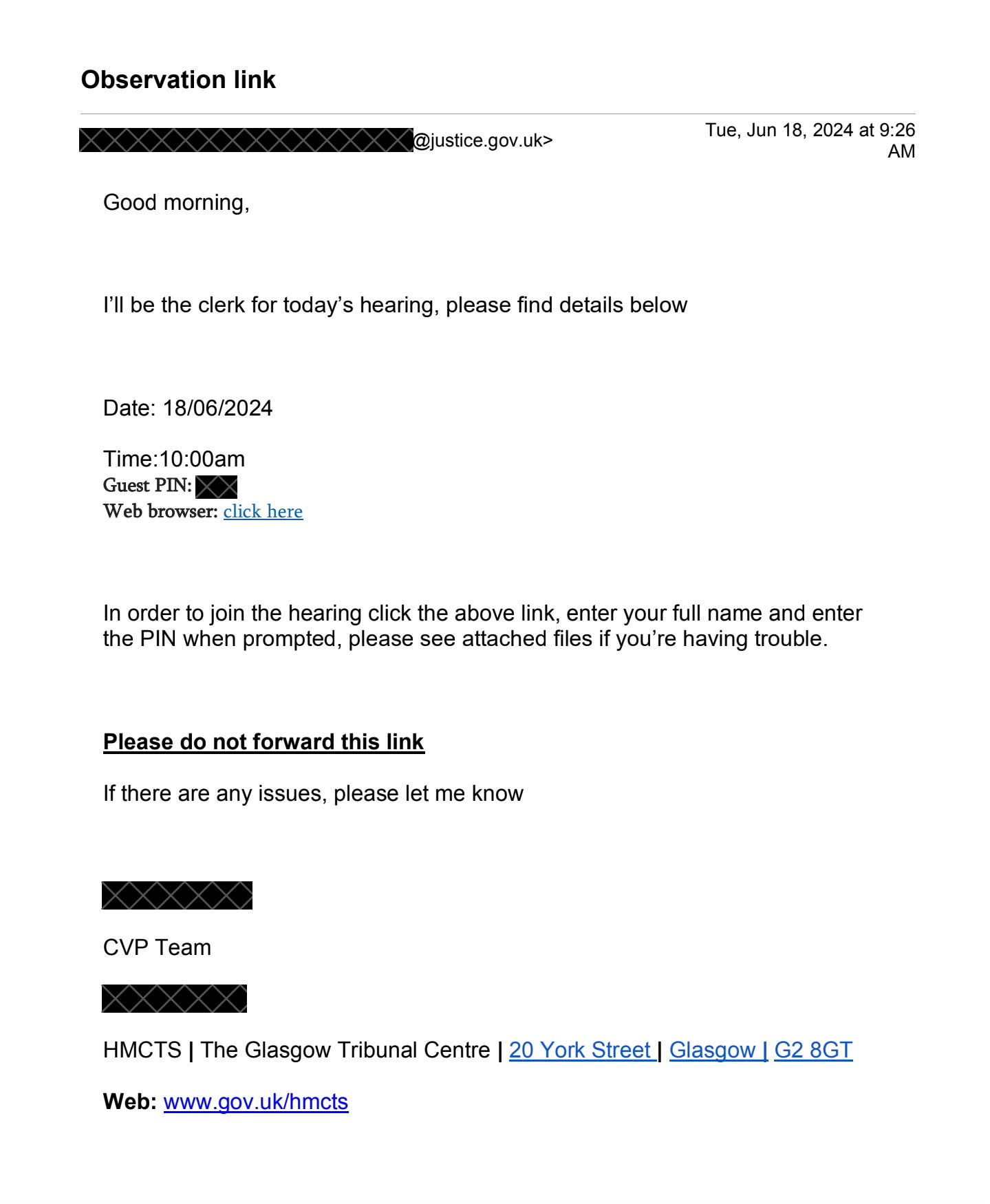Citizen Journalists and Barriers to Open Justice
The bigger picture
Yesterday Tribunal Tweets, a citizen journalist collective that reports on high-profile tribunal hearings, was denied permission to ‘live-tweet’ McBride v The Scottish Ministers. That restriction remains in place, although the collective has been able to publish their contemporaneous notes at the end of each hearing day.
In my previous post on this case, I noted that it was not clear what the legal authority is for this decision. In my view, social media commentary during a high-profile hearing is squarely covered by Article 10 of the European Convention on Human Rights because it relates to the freedom to receive and impart information. Once conduct is within the scope of a Convention right, interference with it by the State must be prescribed by law and necessary in a democratic society in pursuit of a legitimate aim set out in Article 10(2). Courts and Tribunals are subject to s.6 of the Human Rights Act 1998 which makes it unlawful for them to act in a way which is incompatible with a Convention right.
Yesterday I considered Rule 50 of the Employment Tribunals Rules of Procedure, found at Schedule 1 to the Employment Tribunals (Constitution and Rules of Procedure) Regulations 2013. A Rule 50 Order is one such way that a restriction on reporting can be made. Importantly, empowers a Tribunal to restrict reporting only “so far as it considers necessary in the interests of justice or in order to protect the Convention rights of any person”. There is a positive obligation under Rule 50(2) for a Tribunal to give full weight to the principle of open justice and to the requirements under Article 10 of the European Convention on Human Rights.
In my view, these obligations cannot be circumvented by reference to more general powers of a Tribunal to regulate its own procedure contained in Rule 41, nor can reliance on Scottish Courts and Tribunal Service policy circumvent the obligation under s.6 of the Human Rights Act.
The Broadcast Protocol
The SCTS policy on the use of live text based communication such as posting on social media is contained within the Supreme Courts Protocol on the Recording & Broadcasting of Proceedings and on the Use of Social Media. It states that:
i. Journalists who are registered with SCTS may use LTBC without first obtaining permission from the presiding/chairing judge for each separate case. A registered journalist must display his, or her, registration card when tweeting in court. A journalist who is not registered with SCTS must apply to the presiding/chairing judge, through Judicial Communications, for permission to use LTBC.
ii. Members of the public must not, during the course of a virtual hearing or while in court, comment on the proceedings using LTBC in relation to: jury trials; cases involving sexual offences; or cases where the participants cannot be legally identified. Members of the public may use LTBC with other types of case without first obtaining permission.
iii. LTBC may be used only to produce fair and accurate reports of proceedings in court.
iv. The presiding/chairing judge has an overriding responsibility to ensure that there is no interference with the proper administration of justice in the court over which he, or she, presides. In the interests of justice the presiding/chairing judge may order that LTBC must not be used in a particular case.
v. In any case permission to use LTBC may, in the interests of justice, be withdrawn by the presiding/chairing judge.
On the Scottish Courts and Tribunals Website the following instruction is given:
Members of the public must not, during the course of a virtual hearing, comment on the proceedings using any social media platform in relation to: jury trials; cases involving sexual offences; or cases where the participants cannot legally be identified.
Any social media comment in relation to the proceedings of other types of court case during the course of a hearing:
must be fair and accurate
must not be in Contempt of Court
must not be prejudicial to the court case
However, in guidance for those attending a Tribunal remotely, this Q&A document, while stating that “Those linking in to hearings are subject to the same rules as if they were present in Court”, also states that “no comment on the proceedings using live texted based communications (such as Twitter) during the course of a hearing - with the exception of journalists registered with the Scottish Courts and Tribunals Service, or other journalists who have obtained permission in advance.”
There appears to be some discrepancy here. In the official Protocol there is a distinction drawn between official registered journalists and those not registered, with unregistered journalists needing to seek permission to live-tweet. Yet members of the public enjoy a general freedom to live-tweet without permission in any hearing which is not a jury trial; a case involving sexual offences; or a case where participants cannot be legally identified. It seems clear to me that a non-registered journalist must enjoy this freedom too and that the additional registration requirement only obtains when a journalist wishes to report on a hearing that a member of the general public would not generally be free to report on.
These rules seem to me to be broadly capable of justification under an Article 10(2) analysis and so would not obviously engage s.6 of the Human Rights Act. The Q&A document seems to me to have simply misstated the official Protocol. Reliance on it to restrict the Article 10 rights of citizen journalists or the general public would not, without further justification tailored to the case at hand, withstand scrutiny in my view.
There is a general power of the presiding judge to restrict reporting in order to prevent undue interference with the proper administration of justice. This power must be exercised in a way that is compatible with s.6, HRA and due attention must be paid to the principle of Open Justice.
Freedom of Expression and Citizen Journalism
While Article 10 guarantees freedom of expression for “everyone”, the European Court of Human Rights has recognised the vital role of “public watchdog” played by the press in a democratic society. This elevates journalists and those acting as citizen journalists in the eyes of the law.
The ECtHR has consistently recognised the important role played by the media in facilitating and fostering the public’s right to receive and impart information and ideas (Magyar Helsinki Bizottság v Hungary [GC] 2016, § 165). This heightened level of protection is provided to both professional journalists (Pedersen and Baadsgaard v Denmark [GC] 2004, § 71) and non-professional journalists (Falzon v Malta 2018, § 57).
The court places great weight on the role of “public watchdog” and notes that, while this role has traditionally been played by professional journalists and mainstream media, it is increasingly played by non-media actors such as bloggers and citizen journalists, facilitated by the accessibility of the internet (Magyar Helsinki Bizottság v. Hungary [GC], 2016, § 168; Cengiz and Others v. Turkey, 2015, §§ 52 and 54).
At the domestic level, s.12 of the Human Rights Act states:
(4) The court must have particular regard to the importance of the Convention right to freedom of expression and, where the proceedings relate to material which the respondent claims, or which appears to the court, to be journalistic, literary or artistic material (or to conduct connected with such material), to—
(a) the extent to which—
(i) the material has, or is about to, become available to the public; or
(ii) it is, or would be, in the public interest for the material to be published;
(b) any relevant privacy code.
(5) In this section—
“court” includes a tribunal; and
“relief” includes any remedy or order (other than in criminal proceedings).
Any interference with the freedom of Tribunal Tweets to live-tweet must be justified against this background, with due regard to both Article 10 and the principle of open justice.
Other Barriers to Open Justice
Tribunals are increasingly heard online. This presents an opportunity for those who may be interested in a case to attend and follow it when they might otherwise be prevented from doing so due to financial or geographic barriers.
Citizen journalists such as those at Tribunal Tweets play a vitally important role not just as public watchdogs, but as reporters that can convey information about a tribunal on social medial platforms so that those who cannot attend a virtual hearing may still have access to a contemporaneous record of the hearing. Preventing Tribunal Tweets from live-tweeting this hearing has thrown down an immediate barrier to open justice. It must be justified.
With Tribunal Tweets censored, many interested observers have sought to attend this hearing remotely. They have been met with bureaucratic difficulties of needing to email the Employment Tribunal clerk to request a link and then being required to disclose personal information that visible to others attending remotely and would not be required to be disclosed to others attending in person. I include below correspondence which was sent to me by an attendee who was concerned about this.
Disclosure such as this may not be particularly sensitive to some, but to others it will create another barrier to open justice. Tribunal Tweets plays an incredibly important role in making our legal system more accessible. The citizen journalists behind it have shown themselves to be sensitive, respectful, and uncontentious in their reporting. They should be commended by our legal system for contributing to open justice and transparency in law.





In the second to last sentence, should it be ‘uncontentious’ rather than ‘contentious’?